Filter by
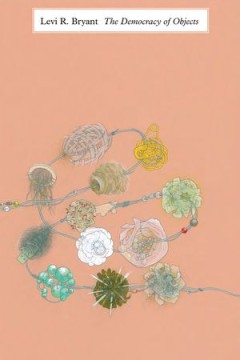
The Democracy Of Objects
In The Democracy of Objects Bryant proposes that we break with the epistemological tradition and once again initiate the project of ontology as first philosophy. Bryant develops a realist ontology, called -onticology-, which argues that being is composed entirely of objects, properties, and relations. Bryant proposes that objects are dynamic systems that relate to the world under conditions of …
- Edition
- -
- ISBN/ISSN
- 9781607852049
- Collation
- -
- Series Title
- -
- Call Number
- -
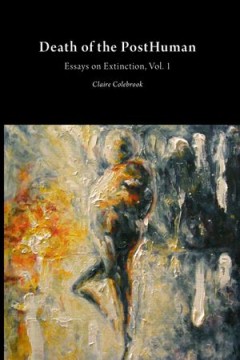
Death Of The Posthuman
Death of the PostHuman undertakes a series of critical encounters with the legacy of what had come to be known as 'theory,' and its contemporary supposedly post-human aftermath. There can be no redemptive post-human future in which the myopia and anthropocentrism of the species finds an exit and manages to emerge with ecology and life. At the same time, what has come to be known as the human - …
- Edition
- -
- ISBN/ISSN
- 9781607852995
- Collation
- -
- Series Title
- -
- Call Number
- -

The Chernobyl Herbarium: Fragments Of An Exploded Consciousness
We entrust readers with thirty fragments of reflections, meditations, recollections, and images — one for each year that has passed since the explosion that rocked and destroyed a part of the Chernobyl nuclear power station in April 1986. The aesthetic visions, thoughts, and experiences that have made their way into this book hover in a grey region between the singular and self-enclosed, on t…
- Edition
- -
- ISBN/ISSN
- 9781785420269
- Collation
- -
- Series Title
- -
- Call Number
- -
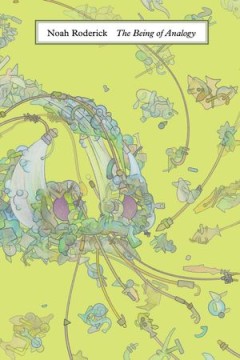
The Being Of Analogy
Similarity has long been excluded from reality in both the analytical and continental traditions. Because it exists in the aesthetic realm, and because aesthetics is thought to be divorced from objective reality, similarity has been confined to the prison of the subject. In The Being of Analogy, Noah Roderick unleashes similarity onto the world of objects. Inspired by object-oriented theories o…
- Edition
- -
- ISBN/ISSN
- 9781785420221
- Collation
- -
- Series Title
- -
- Call Number
- -

Taste
Taste usually occupies the bottom of the sensorial hierarchy, as the quintessentially hedonistic sense, too close to the animal, the elemental and the corporeal, and for this reason disciplined and moralised. At the same time, taste is indissolubly tied to knowledge. To taste is to discriminate, emit judgement, enter an unstable domain of synaesthetic normativity where the certainty of metaphys…
- Edition
- -
- ISBN/ISSN
- 9781911534334
- Collation
- -
- Series Title
- -
- Call Number
- -
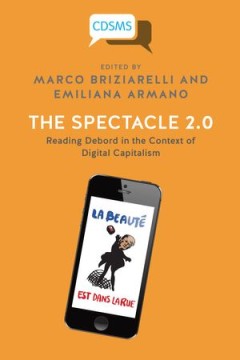
The Spectacle 2.0
Spectacle 2.0 recasts Debord's theory of spectacle within the frame of 21st century digital capitalism. It offers a reassessment of Debord’s original notion of Spectacle from the late 1960s, of its posterior revisitation in the 1990s, and it presents a reinterpretation of the concept within the scenario of contemporary informational capitalism and more specifically of digital and media labour…
- Edition
- -
- ISBN/ISSN
- 9781911534440
- Collation
- -
- Series Title
- -
- Call Number
- -
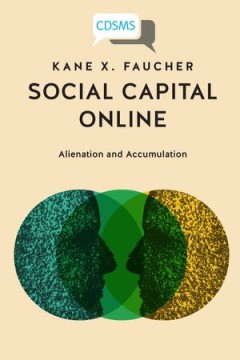
Social Capital Online
"What is ‘social capital’? The enormous positivity surrounding it conceals the instrumental economic rationality underpinning the notion as corporations silently sell consumer data for profit. Status chasing is just one aspect of a process of transforming qualitative aspects of social interactions into quantifiable metrics for easier processing, prediction, and behavioural shaping. A work o…
- Edition
- -
- ISBN/ISSN
- 9781911534570
- Collation
- -
- Series Title
- -
- Call Number
- -

Knowledge In The Age Of Digital Capitalism: An Introduction To Cognitive Mate…
Knowledge in the Age of Digital Capitalism proposes a new critical theory concerning the functioning of capitalism and how we consider knowledge and information. This ambitious book systematically and lucidly introduces contemporary phenomena into the framework of cognitive materialism to address some of the great themes of the social sciences: knowledge, exploitation and social class in an acc…
- Edition
- -
- ISBN/ISSN
- 9781911534242
- Collation
- -
- Series Title
- -
- Call Number
- -
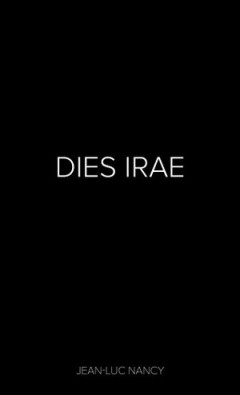
Dies Irae
What does it mean to judge when there is no general and universal norm to define what is right and what is wrong? Can laws be absent and is law always necessary? This is the first publication of an English translation of Jean-Luc Nancy’s acclaimed consideration of the law’s most pervasive principles in the context of actual systems and contemporary institutions, power, norms, laws. In a wor…
- Edition
- -
- ISBN/ISSN
- 9781912656318
- Collation
- -
- Series Title
- -
- Call Number
- -
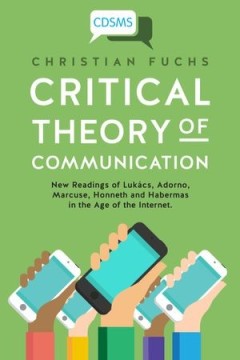
Critical Theory Of Communication: New Readings Of Lukács, Adorno, Marcuse, H…
"This book contributes to the foundations of a critical theory of communication as shaped by the forces of digital capitalism. One of the world's leading theorists of digital media Professor Christian Fuchs explores how the thought of some of the Frankfurt School’s key thinkers can be deployed for critically understanding media in the age of the Internet. Five essays that form the heart of th…
- Edition
- -
- ISBN/ISSN
- 9781911534044
- Collation
- -
- Series Title
- -
- Call Number
- -
 Computer Science, Information & General Works
Computer Science, Information & General Works  Philosophy & Psychology
Philosophy & Psychology  Religion
Religion  Social Sciences
Social Sciences  Language
Language  Pure Science
Pure Science  Applied Sciences
Applied Sciences  Art & Recreation
Art & Recreation  Literature
Literature  History & Geography
History & Geography